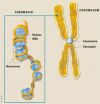(Press-News.org) In life, we're told, we must take the good with the bad, and how we view these life events determines our well-being and ability to adjust. But according to Prof. Dov Shmotkin of Tel Aviv University's Department of Psychology, you need more than the right attitude to successfully negotiate the vicissitudes of life.
As recently reported in Aging and Mental Health, Prof. Shmotkin's research reveals that people's well-being and their adaptation can be ascertained by their "time trajectory" ― their concept of how they have evolved through their remembered past, currently perceived present, and anticipated future. A close study of how patients compartmentalize their life into these periods can help clinical psychologists treat them more effectively, he says.
From trauma to everyday life
Prof. Shmotkin says that the theory emerged from the study of patients who had experienced traumatic events. "We discovered that overcoming trauma was related to how people organized the memory of their trauma on the larger time continuum of their life course," he explains.
In a study of Holocaust survivors, Prof. Shmotkin separated these survivors into those who considered the "Holocaust as past" and those who conceived of the "Holocaust as present." Those in the "Holocaust as past" category were able to draw an effective line between the present day and the past trauma, thus allowing themselves to move forward. Those in the "Holocaust as present" category considered their traumatic experience as still existing, which indicated a difficulty in containing the trauma within a specific time limit.
But Prof. Shmotkin quickly saw that these coping mechanisms were not exclusive to those who had experienced trauma. Instead, he theorized, these mechanisms are a part of the normal aging process. When young, he explains, our wishes for self improvement and growth lie in an anticipated future. But as we get older, our longer perspective can help or hinder in confronting the present challenges of aging.
A time line to improve patient care
Prof. Shmotkin tested his thesis in collaboration with his former PhD students, Drs. Yuval Palgi and Amit Shrira. They studied participants with an average age of 92 who described their personal time trajectories in terms of their satisfaction with the recent past, the present, and near future.
The best-functioning participants were those whose time trajectory appeared stable rather than "descending," as was expected to occur is very old age, or "ascending," as is normal for youth and adults. Participants at this advanced age also revealed higher well-being when they managed to contrast their present with the suffering they endured in miserable periods of their life. Notably, Holocaust survivors were less able to make this break between the present and the trauma of their past.
This information, says Prof. Shmotkin, is crucial for improving therapeutic care, although it is often overlooked by clinical psychologists. "A person's subjective time frame is key to the formulation of that person's life story and well-being," he explains. Prof. Shmotkin urges psychologists to try to better understand their patients' personal time trajectories, using these as a tool to help patients reconcile their traumatic pasts and the present challenges of aging.
###
American Friends of Tel Aviv University (www.aftau.org) supports Israel's leading, most comprehensive and most sought-after center of higher learning. Independently ranked 94th among the world's top universities for the impact of its research, TAU's innovations and discoveries are cited more often by the global scientific community than all but 10 other universities.
Internationally recognized for the scope and groundbreaking nature of its research and scholarship, Tel Aviv University consistently produces work with profound implications for the future.
Re-evaluating the time of your life
Tel Aviv University researcher investigates the 'subjective time trajectory' in psychological health
2010-10-13
ELSE PRESS RELEASES FROM THIS DATE:
Sexual issues a major concern for cancer patients taking new targeted drugs
2010-10-13
New drugs that target specific molecular mechanisms of cancer have improved the treatment of cancer patients in recent years, but those benefits may come with a cost to the patient's sex life, researchers have found.
At the 35th Congress of the European Society for Medical Oncology (ESMO) in Milan, Italy, French researchers reported on one of the few studies to investigate the impact of cancer therapy on the sexual functioning of patients.
Dr Yohann Loriot and Dr Thomas Bessede from Institut Gustave Roussy in Villejuif, France and colleagues found that patients taking ...
Afatinib benefits lung cancer patients whose cancer progressed after treatment with EGFR inhibitors
2010-10-13
Lung cancer patients who have already been treated with the EGFR inhibitors erlotinib or gefitinib seem to gain further benefits in terms of progression-free survival and tumor shrinkage when treated with the new drug afatinib, the results of a Phase IIb/III trial show.
At the 35th Congress of the European Society for Medical Oncology (ESMO) in Milan, Italy, Dr Vincent Miller from Memorial Sloan-Kettering Cancer Center in New York, USA, reported findings from the LUX-Lung 1 trial of afatinib in 585 patients with lung adenocarcinoma whose cancer had progressed after chemotherapy ...
New Phase II study shows first-line promise of lung cancer drug PF-299
2010-10-13
A new-generation lung cancer drug has shown an impressive ability to prevent disease progression when administered as a first-line treatment in patients with advanced disease, investigators reported at the 35th Congress of the European Society for Medical Oncology (ESMO).
Preliminary results from an ongoing Phase-II trial of the drug PF299804 (PF-299) showed that close to 85% of patients whose cancers harbor mutated forms of the EGFR gene have remained progression-free for at least nine months, reported Dr Tony Mok from the Chinese University of Hong Kong.
While some ...
Pazopanib shows promise in Phase II trial for relapsed/refractory urothelial cancer
2010-10-13
An ongoing Phase-II trial investigating a new, targeted therapy for metastatic urothelial cancer has generated promising early results, Italian researchers reported at the 35th Congress of the European Society for Medical Oncology (ESMO) in Milan, Italy.
Urothelial cancers affect the tissue lining the inner surfaces of the bladder and other parts of the urinary system. In cases of metastatic disease, median survival is approximately 12-15 months and there is a 10-15% chance of prolonging it by the use of standard chemotherapy regimens, particularly in otherwise healthy ...
Phase III study shows everolimus delays tumor progression in hard-to-treat neuroendocrine tumors
2010-10-13
The results of a large Phase-III clinical trial have shown that the drug everolimus delays tumor progression in patients with a hard-to-treat group of rare cancers that affect particular hormone-producing cells.
At the 35th Congress of the European Society for Medical Oncology (ESMO), Dr Marianne Pavel from Charité University in Berlin, Germany reported that everolimus improved progression-free survival by 5.1 months in patients with advanced neuroendocrine tumors.
Neuroendocrine tumors are slow-growing malignancies that originate from cells of the body's neuroendocrine ...
Selective strategy could lead to new approaches against schizophrenia
2010-10-13
A new class of compounds identified by researchers at Emory University School of Medicine could be developed into drugs for the treatment of schizophrenia. The compounds enhance signaling by molecules in the brain called NMDA receptors, which scientists believe are functioning at low levels in people with schizophrenia.
Led by Stephen Traynelis, PhD, professor of pharmacology, a team of Emory researchers sifted through thousands of chemicals and found one, called CIQ, which could selectively enhance the function of certain NMDA receptors without affecting others.
The ...
A picture worth a thousand words: New research links visual cues to male sexual memory
2010-10-13
Iowa City, IA—October 11, 2010— A new study published in Applied Cognitive Psychology finds that college-aged men are very likely to remember a woman's initial sexual interest (attraction or rejection), especially when the woman in question is thought to be attractive, is dressed more provocatively, and expresses positive sexual interest.
In the study the men were shown full-body photographs of college-aged women who expressed cues of sexual interest or rejection. The participating males represented mixed sexual histories, and a capacity for varying degrees of sexually ...
University of Florida research provides new understanding of bizarre extinct mammal
2010-10-13
GAINESVILLE, Fla. --- University of Florida researchers presenting new fossil evidence of an exceptionally well-preserved 55-million-year-old North American mammal have found it shares a common ancestor with rodents and primates, including humans.The study published today in the online edition of the Zoological Journal of the Linnean Society, describes the cranial anatomy of the extinct mammal, Labidolemur kayi.
High resolution CT scans of the specimens allowed researchers to study minute details in the skull, including bone structures smaller than one-tenth of a millimeter. ...
On the trail of the epigenetic code
2010-10-13
The genetic inherited material DNA was long viewed as the sole bearer of hereditary information. The function of its packaging proteins, the histones, was believed to be exclusively structural. Additional genetic information can be stored, however, and passed on to subsequent generations through chemical changes in the DNA or histones. Scientists from the Max Planck Institute for Biophysical Chemistry in Göttingen have succeeded in creating an experimental system for testing the function of such chemical histone modifications and their influence on the organism. Chemical ...
Smaller and cheaper but 300 times more intense
2010-10-13
More brilliant X-rays, more cost-effective methods for developing new energy sources and advanced manufacturing processes are just some of the benefits which may come from a novel technology, proven at the theoretical level by a consortium of British and European laser scientists. The research, led by scientists at the Science and Technology Facilities Council's Central Laser Facility is published in this week's edition of Nature Physics (October 10 2010).
A team of scientists from the Instituto Superior Tecnico in Lisbon, Imperial College London, and the Universities ...
LAST 30 PRESS RELEASES:
Genetics help explain who gets the ‘telltale tingle’ from music, art and literature
Many Americans misunderstand medical aid in dying laws
Researchers publish landmark infectious disease study in ‘Science’
New NSF award supports innovative role-playing game approach to strengthening research security in academia
Kumar named to ACMA Emerging Leaders Program for 2026
AI language models could transform aquatic environmental risk assessment
New isotope tools reveal hidden pathways reshaping the global nitrogen cycle
Study reveals how antibiotic structure controls removal from water using biochar
Why chronic pain lasts longer in women: Immune cells offer clues
Toxic exposure creates epigenetic disease risk over 20 generations
More time spent on social media linked to steroid use intentions among boys and men
New study suggests a “kick it while it’s down” approach to cancer treatment could improve cure rates
Milken Institute, Ann Theodore Foundation launch new grant to support clinical trial for potential sarcoidosis treatment
New strategies boost effectiveness of CAR-NK therapy against cancer
Study: Adolescent cannabis use linked to doubling risk of psychotic and bipolar disorders
Invisible harms: drug-related deaths spike after hurricanes and tropical storms
Adolescent cannabis use and risk of psychotic, bipolar, depressive, and anxiety disorders
Anxiety, depression, and care barriers in adults with intellectual and developmental disabilities
Study: Anxiety, gloom often accompany intellectual deficits
Massage Therapy Foundation awards $300,000 research grant to the University of Denver
Gastrointestinal toxicity linked to targeted cancer therapies in the United States
Countdown to the Bial Award in Biomedicine 2025
Blood marker from dementia research could help track aging across the animal world
Birds change altitude to survive epic journeys across deserts and seas
Here's why you need a backup for the map on your phone
ACS Central Science | Researchers from Insilico Medicine and Lilly publish foundational vision for fully autonomous “Prompt-to-Drug” pharmaceutical R&D
Increasing the number of coronary interventions in patients with acute myocardial infarction does not appear to reduce death rates
Tackling uplift resistance in tall infrastructures sustainably
Novel wireless origami-inspired smart cushioning device for safer logistics
Hidden genetic mismatch, which triples the risk of a life-threatening immune attack after cord blood transplantation
[Press-News.org] Re-evaluating the time of your lifeTel Aviv University researcher investigates the 'subjective time trajectory' in psychological health

